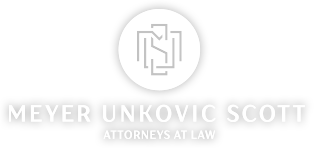By: David G. Oberdick, Intellectual Property Chair
A pair of decisions on March 4 by the U.S. Supreme Court brought into the spotlight procedures related to copyright cases, one concerning what occurs before a lawsuit and the other after. Each of the results are important to remember when you are deciding when to file a copyright application and when involved in a lawsuit over copyrights.
Filing a lawsuit
The Court unanimously affirmed the ruling of an Eleventh Circuit decision determining a copyright infringement lawsuit can only be filed after the work at issue has been properly registered by the Copyright Office, and not while a copyright application has been filed but not yet approved. There had been a discrepancy among some courts over just when a suit could be brought, and copyright owners expressed concern that delays in application processing could lead to the three-year statute of limitations running out before registration is complete.
In Fourth Estate Public Benefit Corp. v. Wall-Street.com, LLC et al, the news organization Fourth Estate was suing the news website Wall-Street over copyright infringement when Wall-Street didn’t remove Fourth Estate articles from its website after canceling their license agreement. Fourth Estate filed copyright applications for the articles, but the Copyright Office hadn’t yet acted on them.
Justice Ruth Bader Ginsburg wrote in the court’s opinion that though, under the amended Copyright Act of 1976, a copyright author gains exclusive rights to their work upon its creation, they still must have it registered before bringing an infringement case. She later wrote, “Fourth Estate’s contrary reading in part stems from its misapprehension of the significance of certain 1976 revisions to the Copyright Act.”
While the opinion admitted that “the statutory scheme has not worked as Congress likely envisioned” and there are long delays in processing applications because of staffing and budgetary shortages, “Fourth Estate’s fear is overstated” because the average processing time is seven months.
But what if you decide to wait a couple of years before filing for registration? This decision highlights that whether or not they are planning for litigation, copyright owners should not wait when it comes to filing the paperwork for registration. The earlier the process begins, the better. In addition, early filing of a copyright application – i.e., on or before three months after publication of the work – affords the copyright owner the right to pursue statutory damages, as well as legal fees and costs in an enforcement action. In other words, file early and often.
Defining ‘full costs’
In another decision concerning the interpretation of the Copyright Act, software company Oracle USA Inc. won an infringement case against Remini Street Inc. and was awarded an additional $12.8 million in litigation expenses from a district court, but the Supreme Court justices unanimously ruled that all of the costs included were not covered by the law and should not have been awarded. These expenses included expert witnesses, e-discovery and jury consulting.
The Copyright Act allows courts to award “full costs” of litigation to the prevailing party, leading some parties to claim the right to types of compensation beyond the expenses specifically laid out in the federal cost statutes in U.S. Code §§ 1821 and 1920. But in the court’s opinion, Justice Brett Kavanaugh wrote that costs are not handled differently in copyright cases.
“The word ‘full’ operates in the phrase ‘full costs’ just as it operates in other common phrases,” he wrote. “A ‘full moon’ means the moon, not Mars. A ‘full breakfast’ means breakfast, not lunch. A ‘full season ticket plan’ means tickets, not hot dogs. So too, the term ‘full costs’ means costs, not other expenses.”
Going forward, the decision clarifies a confusing portion of the Copyright Act and reminds all parties involved in litigation that more expansive expenses by the prevailing party will likely not be covered.
For more information on copyright law or assistance with intellectual property litigation, including infringement and misappropriation, please contact David G. Oberdick. Contact information is included below.
This material is for informational purposes only. It is not and should not be solely relied on as legal advice in dealing with any specific situation.

